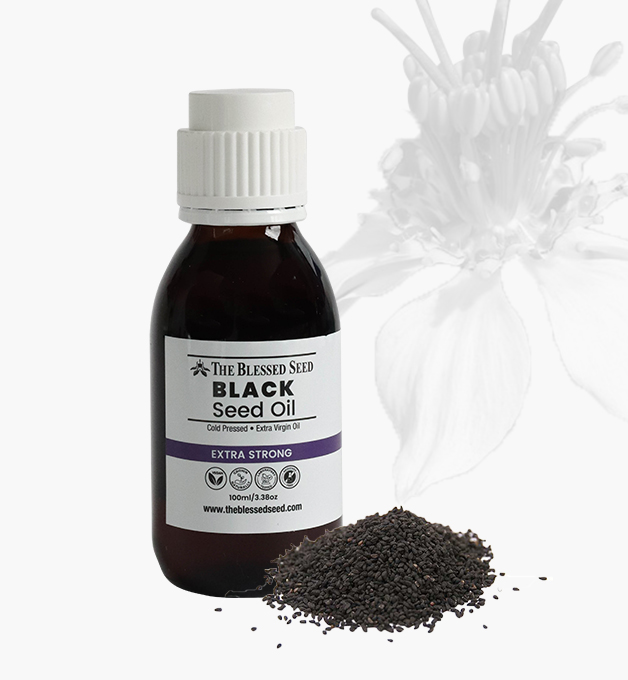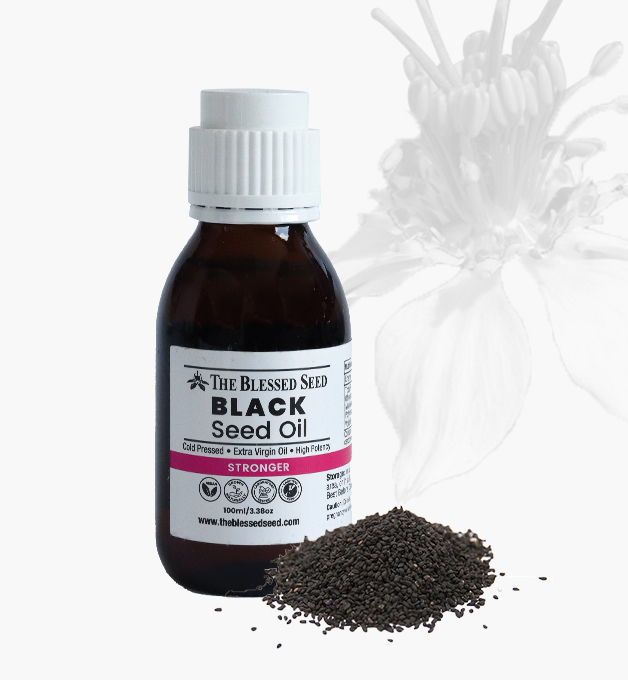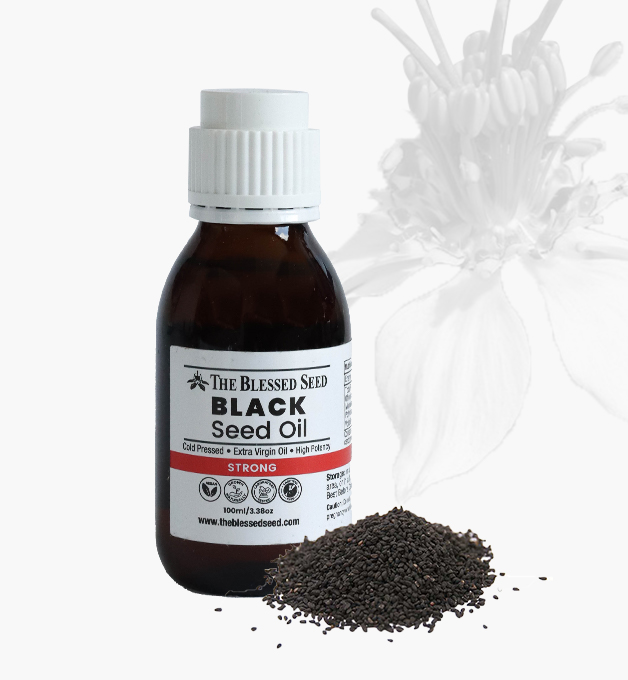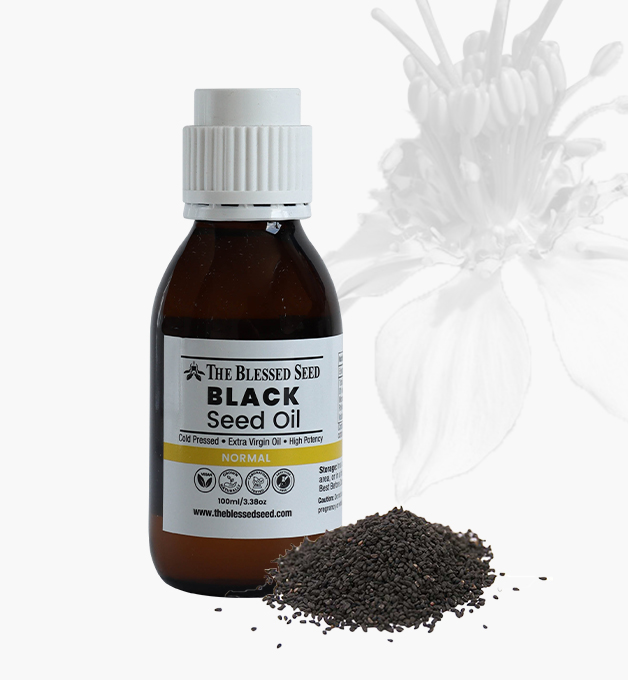Black seed oil is an extract derived from the seeds of the Nigella sativa plant, which is native to parts of Asia, Africa, and Europe. It has been used for centuries for its medicinal properties and has gained popularity in recent years for its potential health benefits. Here are some of the benefits of black seed oil:
Reduces inflammation: Black seed oil has anti-inflammatory properties that can help reduce inflammation in the body, which can lead to a variety of health problems.
Boosts the immune system: Black seed oil has been shown to boost the immune system, helping to fight off infections and diseases.
Improves skin health: The anti-inflammatory and antioxidant properties of black seed oil can help improve skin health by reducing inflammation, redness, and swelling.
Supports heart health: Black seed oil has been shown to help reduce cholesterol levels and blood pressure, which can help reduce the risk of heart disease.
Relieves respiratory problems: Black seed oil has been traditionally used to treat respiratory problems such as asthma, bronchitis, and coughs.
Aids in digestion: Black seed oil has been shown to improve digestion and reduce symptoms such as bloating, constipation, and diarrhea.
May have anti-cancer properties: Some studies suggest that black seed oil may have anti-cancer properties, although more research is needed in this area.
May improve liver function: Black seed oil has been shown to have hepatoprotective effects, meaning it may help protect the liver from damage and improve liver function.
May help with weight loss: Black seed oil has been shown to have potential weight loss benefits, although more research is needed to confirm this.
May improve cognitive function: Some studies suggest that black seed oil may have cognitive benefits, such as improving memory and reducing the risk of neurodegenerative diseases like Alzheimer’s.
May have anti-diabetic effects: Black seed oil has been shown to have potential anti-diabetic effects by helping to regulate blood sugar levels.
May have anti-inflammatory effects on skin: Topical use of black seed oil has been shown to have anti-inflammatory effects on skin conditions like eczema and psoriasis.
May have anti-anxiety and anti-depressant effects: Some studies suggest that black seed oil may have potential anti-anxiety and anti-depressant effects, although more research is needed in this area.
May improve male fertility: Black seed oil has been shown to have potential benefits for male fertility by improving sperm count and motility.
May have anti-inflammatory effects on the gut: Black seed oil has been shown to have potential anti-inflammatory effects on the gut, which may help with conditions like inflammatory bowel disease.
May have anti-allergic effects: Black seed oil has been shown to have potential anti-allergic effects, which may help reduce the symptoms of allergies like hay fever.
May have anti-microbial effects: Black seed oil has been shown to have potential anti-microbial effects, which may help fight off bacterial and fungal infections.
May have anti-inflammatory effects on the brain: Black seed oil has been shown to have potential anti-inflammatory effects on the brain, which may help with conditions like multiple sclerosis and Parkinson’s disease.
May improve sleep quality: Some studies suggest that black seed oil may have potential benefits for sleep quality, although more research is needed in this area.
May have anti-viral effects: Black seed oil has been shown to have potential anti-viral effects, which may help fight off viral infections like the flu and common cold.
May improve wound healing: Black seed oil has been shown to have potential benefits for wound healing by reducing inflammation and promoting tissue regeneration.
May improve exercise performance: Black seed oil has been shown to have potential benefits for exercise performance by reducing inflammation and improving oxygen uptake.
May improve hair health: Black seed oil has been traditionally used to improve hair health and may have benefits for reducing hair loss and promoting hair growth.
May improve menstrual health: Black seed oil has been traditionally used to improve menstrual health and may have benefits for reducing menstrual pain and regulating menstrual cycles.
May have anti-inflammatory effects on the kidneys: Black seed oil has been shown to have potential anti-inflammatory effects on the kidneys, which may help with conditions like kidney disease.
May improve oral health: Black seed oil has been shown to have potential benefits for oral health by reducing inflammation and fighting off harmful bacteria.
May have anti-aging effects: Black seed oil has been shown to have potential anti-aging effects by reducing oxidative stress and promoting cellular regeneration.
May improve bone health: Some studies suggest that black seed oil may have potential benefits for bone health by improving bone density and reducing the risk of osteoporosis.
May improve eye health: Black seed oil has been shown to have potential benefits for eye health by reducing inflammation and oxidative stress.
May improve overall health and well-being: While more research is needed to fully understand the potential benefits of black seed oil, many people report feeling an overall improvement in their health and well-being after using it regularly.
May have anti-inflammatory effects on the joints: Black seed oil has been shown to have potential anti-inflammatory effects on the joints, which may help with conditions like rheumatoid arthritis.
May improve liver health in people with non-alcoholic fatty liver disease: Some studies suggest that black seed oil may have potential benefits for liver health in people with non-alcoholic fatty liver disease by reducing liver enzymes and improving liver function.
May have anti-cancer effects in certain types of cancer: Some studies suggest that black seed oil may have potential anti-cancer effects in certain types of cancer, such as breast cancer, prostate cancer, and colon cancer.
May improve mood: Some studies suggest that black seed oil may have potential benefits for improving mood and reducing symptoms of depression.
May improve cardiovascular health in people with type 2 diabetes: Some studies suggest that black seed oil may have potential benefits for improving cardiovascular health in people with type 2 diabetes by reducing oxidative stress and inflammation.
May improve symptoms of allergic rhinitis: Black seed oil has been shown to have potential benefits for reducing symptoms of allergic rhinitis, such as sneezing and nasal congestion.
May have anti-inflammatory effects on the skin: Topical use of black seed oil has been shown to have anti-inflammatory effects on the skin, which may help with conditions like acne and eczema.
May have anti-aging effects on the skin: Topical use of black seed oil has been shown to have potential anti-aging effects on the skin by reducing fine lines and wrinkles and improving skin elasticity.
May improve insulin sensitivity: Black seed oil has been shown to have potential benefits for improving insulin sensitivity, which may help with conditions like metabolic syndrome and type 2 diabetes.
May have anti-inflammatory effects on the lungs: Black seed oil has been shown to have potential anti-inflammatory effects on the lungs, which may help with conditions like asthma and chronic obstructive pulmonary disease (COPD).
It is important to note that more research is needed to fully understand the potential benefits of black seed oil in many of these areas, and it should not be used as a substitute for medical treatment. Additionally, people with certain health conditions or taking certain medications may need to avoid or limit their use of black seed oil.






